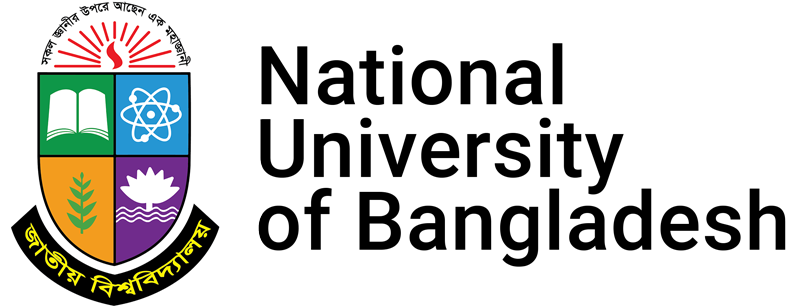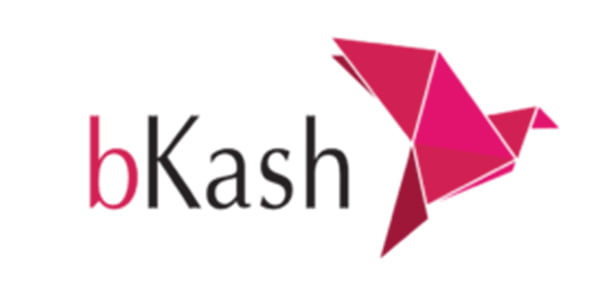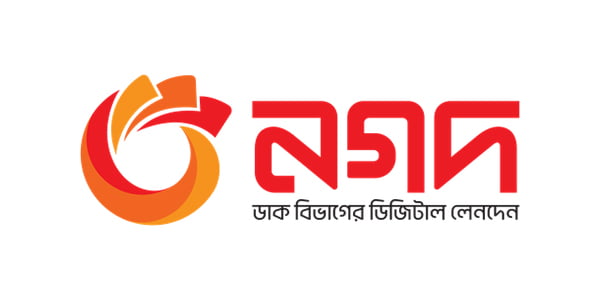আপনার গ্লোবাল ক্যারিয়ার প্রসপেক্ট ও আয় বাড়িয়ে নিন মাত্র ১ সপ্তাহেগ্রামীণফোন একাডেমিতে কোডার্সট্রাস্টের প্রফেশনাল সার্টিফিকেট কোর্সগুলো করে, সম্পূর্ণ বিনামূল্যে।
Follow Us!
Stay in the loop by connecting and following us on our social media! Keep up-to-date with our latest news and activities.
FOLLOW
আপনার গ্লোবাল ক্যারিয়ার প্রসপেক্ট ও আয় বাড়িয়ে নিন মাত্র ১ সপ্তাহেগ্রামীণফোন একাডেমিতে কোডার্সট্রাস্টের প্রফেশনাল সার্টিফিকেট কোর্সগুলো করে, সম্পূর্ণ বিনামূল্যে।
Follow Us!
Stay in the loop by connecting and following us on our social media! Keep up-to-date with our latest news and activities.
FOLLOW
Home > Courses > NU Postgraduate Diploma > Information & Communication Technology
Information & Communication Technology
Your Path to ICT Proficiency Starts Here!
Enroll Now
Acquire a skill and become job-ready with professional certifications
- 40 Credit Hours
- 12 Months
- 10 Subjects
- Instructor-Led
- On-Campus
Share this course
- Dynamic Tech Career Boost
- Hands-On Skill Mastery
- Industry-Tailored Expertise
- Develop skills for real career growth
- Learn from experts active in their field
- Learn by working on real-world problems
- Structured guidance ensuring continuous learning
Information & Communication Technology stands as a cornerstone in contemporary businesses and industries, embracing a multitude of technologies and applications essential for modern operations. The diploma program serves as a conduit for students to cultivate proficiency in hardware setup, software configuration, programming languages, database management, system maintenance, networking, mobile application development, and web design.
Earning a diploma in Information & Communication Technology confers numerous benefits, empowering graduates with practical skills tailored to navigate real-world challenges within the ICT sector. Armed with this qualification, individuals gain a competitive edge in the job market, unlocking avenues for diverse career opportunities spanning roles such as system administrators, database managers, network specialists, mobile app developers, and web designers.
Furthermore, the program’s commitment to career enhancement aligns closely with industry standards, equipping students with the requisite skills and knowledge to thrive in the rapidly evolving ICT landscape. Through a multifaceted approach to evaluation encompassing internal assessments, seminars, and project reports, students emerge adeptly prepared to confront the intricacies of the industry.
Course Objective
- Develop a comprehensive understanding of information and communication technologies
- Master essential skills in system maintenance, troubleshooting, and network management
- Gain proficiency in programming languages such as Java and web development technologies like HTML5 and CSS3
- Acquire knowledge in database management, mobile application development, and web design
- Learn to utilize content management systems like WordPress and Joomla to develop professional websites efficiently
- Enhance problem-solving abilities and critical thinking skills through practical lab sessions and real-world projects
What you'll learn
- Proficiency in programming languages and web development tools
- Understanding of network protocols, database management, and system administration
- Ability to develop mobile applications and design dynamic websites
- Expertise in troubleshooting system issues and implementing security best practices
- Proficient use of content management systems for efficient website development
- Enhanced problem-solving and analytical skills for addressing complex ICT challenges
Learning Path
Semester 01 - 20 Credits
Course Overview and Context:
This course offers a comprehensive exploration of Information and Communication Technologies (ICT), balancing theoretical understanding with practical skills. With a credit value of 4 and spanning 40 class hours, the course is structured to provide students with a foundational grasp of ICT concepts and their real-world applications.
Course Outcomes:
- Have a basic introduction to information and communication technologies and their application in the workplace.
- Have a basic understanding of computer software, hardware, and associated technologies.
- Have essential learning about using computers in the workplace.
- Have basic knowledge of Internet technologies and how they can influence the workplace.
Course Overview and Context:
This course provides a practical understanding of office automation, covering hardware, software, web applications, and smart technologies. Students learn computer assembly, OS setup, and tools like Adobe Photoshop. Labs reinforce skills in hardware/software setup and explore smart technologies, ensuring readiness for today’s office environments.
Course Outcomes:
- Set up and use different hardware, application software, web application apps, and graphical tools
- Use different types of operating systems
- Know smart technologies and their applications
Course Overview and Context:
This course aims to teach the principles of object-oriented programming in JAVA, covering abstraction, encapsulation, inheritance, and polymorphism. Students will learn the fundamentals of JAVA programming, including class definition, method invocation, and the use of class libraries. The course also introduces concepts of inheritance, design, packages, interfaces, and exception handling.
Course Outcomes:
- Have a theoretical concept of JAVA programming language
- Able to solve real-life problems using JAVA
Course Overview and Context:
This course equips students with a solid foundation in database management, covering conceptual understanding, practical skills in SQL, and advanced topics like database administration. The hands-on lab sessions ensure that theoretical knowledge is translated into practical proficiency, preparing students for real-world scenarios in database design and management.
Course Outcomes:
- Possess a comprehensive grasp of database concepts and database management system software.
- Attain a high-level understanding of primary DBMS components and their functionalities.
- Demonstrate the ability to model an application’s data requirements using tools like ER diagrams and design corresponding database schemas.
- Exhibit proficiency in crafting SQL commands for tasks such as table creation, index establishment, data manipulation (insert/update/delete), and data querying within a relational DBMS.
- Have the capability to develop data-intensive applications by programming with Database Management System APIs.
Course Overview and Context:
This course seamlessly blends theory with hands-on experience, allowing students to master multimedia formats, drawing concepts, and cutting-edge software tools like Photoshop and Macromedia Director. Through exciting projects and labs, students not only gain proficiency in multimedia content creation but also stay updated on the latest web technologies and advanced research topics in this dynamic field.
Course Outcomes:
- Understand the principles and current technologies of multimedia systems.
- Acquire familiarity with the latest advancements in web technologies and explore select advanced topics in current multimedia research.
Semester 02 - 20 Credits
Course Overview and Context:
This course empowers students with hands-on skills in system maintenance and troubleshooting, spanning hardware components, networking, and software challenges. Through practical labs and theoretical insights, students become proficient in system assembly, disassembly, and resolving common issues, ensuring a comprehensive grasp of computer system maintenance and troubleshooting.
Course Outcomes:
- Efficiently troubleshoot system units, motherboard components, processors, bus architecture, and interfaces.
- Expertly de-assemble and assemble laptops and PCs.
- Address networking challenges and conduct troubleshooting and maintenance.
- Skillfully diagnose and solve common software problems.
- Execute comprehensive data backup and recovery plans.
Course Overview and Context:
This course delves into the intricacies of computer network maintenance, combining theoretical knowledge with hands-on practical experience. Students learn to configure switches, routers, and end devices, implement addressing schemes, and troubleshoot connectivity issues. The use of networking tools and simulation programs enhances their skills, preparing them to build and maintain robust computer networks.
Course Outcomes:
- Build simple LANs, perform basic router and switch configurations, and implement IPv4 and IPv6 addressing schemes
- Configure routers, switches, and end devices to provide access to local and remote network resources, ensuring end-to-end connectivity between remote devices.
- Develop critical thinking and problem-solving skills through real equipment and Cisco Packet Tracer simulations.
- Configure and troubleshoot network connectivity using security best practices.
Course Overview and Context:
This course is a comprehensive exploration of mobile application development, encompassing Java fundamentals, Android basics, and advanced topics. Students not only learn the theoretical foundations but also engage in hands-on labs, developing practical skills for creating mobile applications. The emphasis on location-based services, multimedia, and networking ensures students are well-equipped to meet the demands of the dynamic mobile development landscape.
Course Outcomes:
- Acquire proficiency in developing applications for Android mobile devices.
- Attain eligibility for numerous job opportunities worldwide in the field.
- Demonstrate the capability to develop mobile applications with integrated database support.
- Showcase the ability to create mobile applications that intelligently communicate with server applications.
- Master the development of multimedia and location-based applications tailored for Android devices.
Course Overview and Context:
This course empowers students to master web application and website design, covering a wide array of technologies from raw HTML to advanced CMS tools. Through theoretical concepts and practical labs, students learn to create dynamic, secure, and visually appealing websites, ensuring proficiency in the latest web development technologies.
Course Outcomes:
- Effortlessly craft highly professional, interactive, and dynamic websites within a short timeframe.
- Gain enriched knowledge and hands-on experience in utilizing the latest technologies, including HTML5 and CSS3.
- Rapidly design reasonable, marketable, and professional websites utilizing intuitive CMS tools.
Practical- Internship in Information & Communication Technology
Course Outcomes:
- Apply skills in Information & Communication Technology through hands-on internship experiences.
- Gain practical insights into the latest technologies, ensuring real-world application.
The students are required to undergo an internship in Information & Communication Technology Firm for gaining practical experience in the field.
Career Opportunity
- IT Manager or IT Director
- Software Developer or Programmer
- Network Administrator or Network Engineer
- Database Administrator or Data Analyst
- Web Developer or Web Designer
- System Analyst or Business Analyst
- Mobile App Developer or Mobile Solutions Architect
- Cybersecurity Analyst or Information Security Specialist
IN AFFILIATION WITH


CodersTrust College Code: 6634
Training 1.5M+ Learners and Professionals in 15+ Countries


Build Your Future!
Enroll in Postgraduate Diploma Courses Offered by National University in Affiliation with CodersTrust Bangladesh
Frequently Asked Questions


Innovating to Transform High-Potential Youth into Skilled Digital Workforce Worldwide
MENU
CONTACT
40 Wall Street, Suite 2004
New York 10005, USA
House# 82, Road# 19/A, Block# E
Banani, Dhaka-1213
Bangladesh
SUBSCRIBE
Unsubscribe anytime
We Accept












Copyright © 2023 – 2025 CodersTrust | All Rights Reserved



